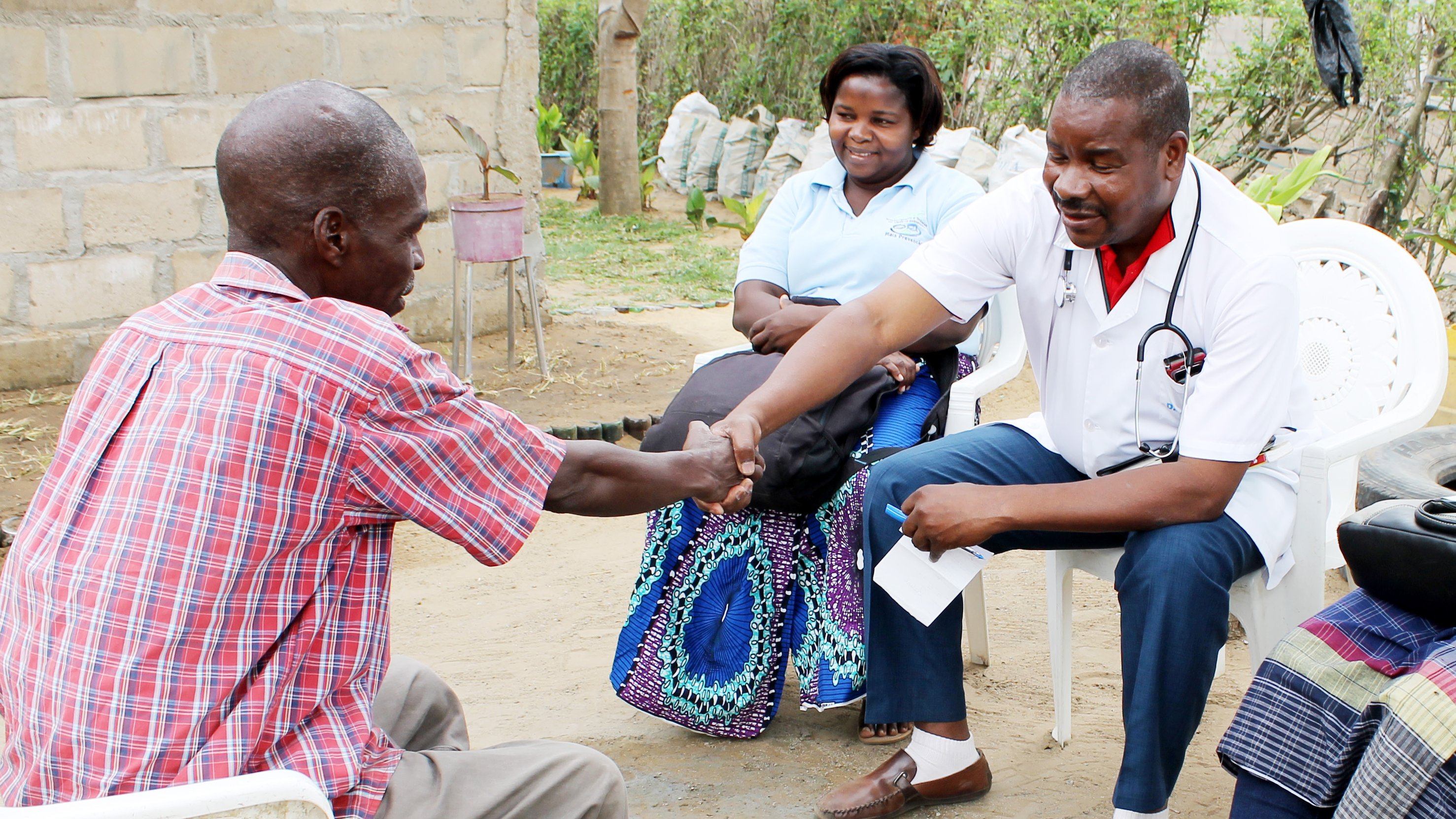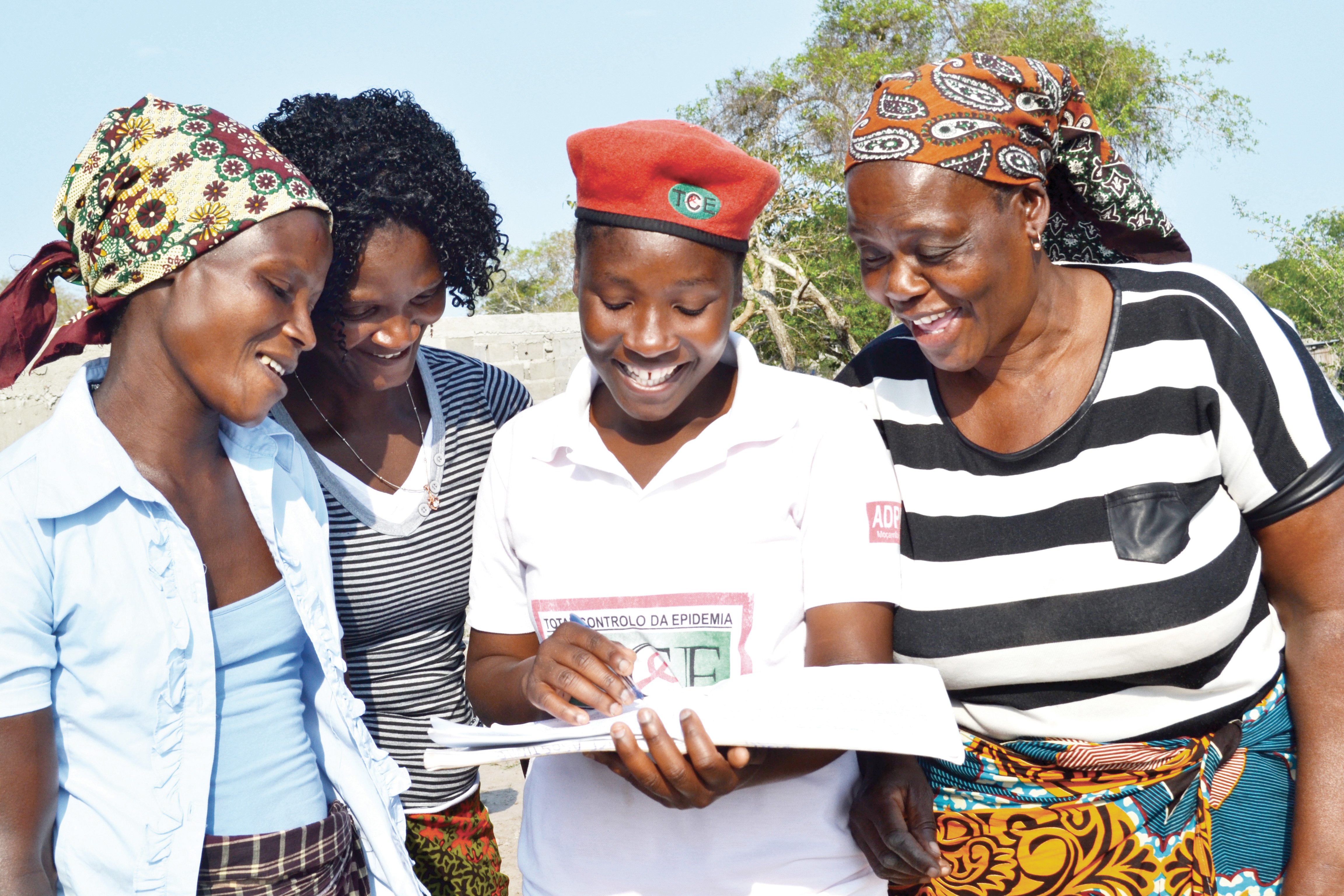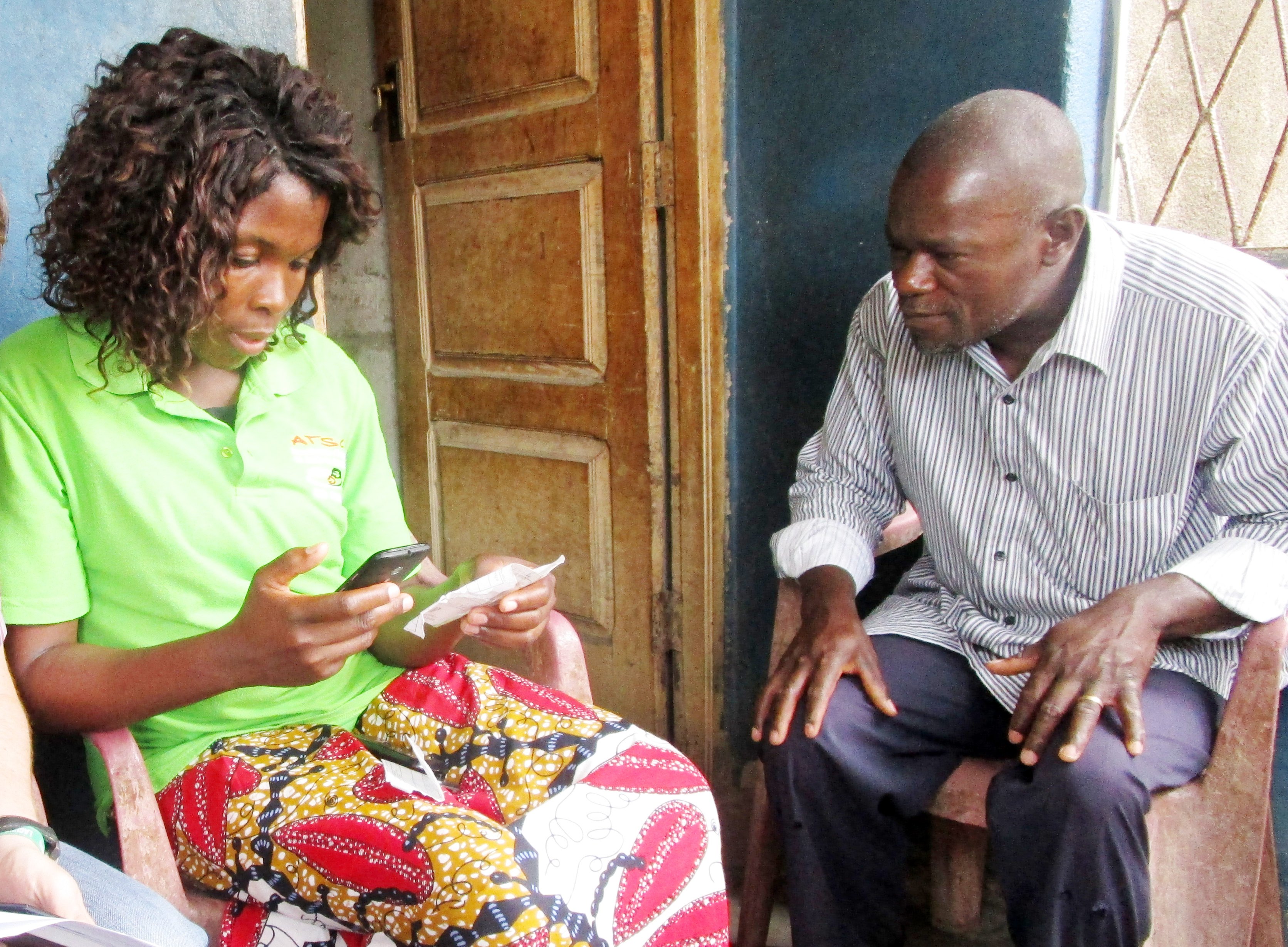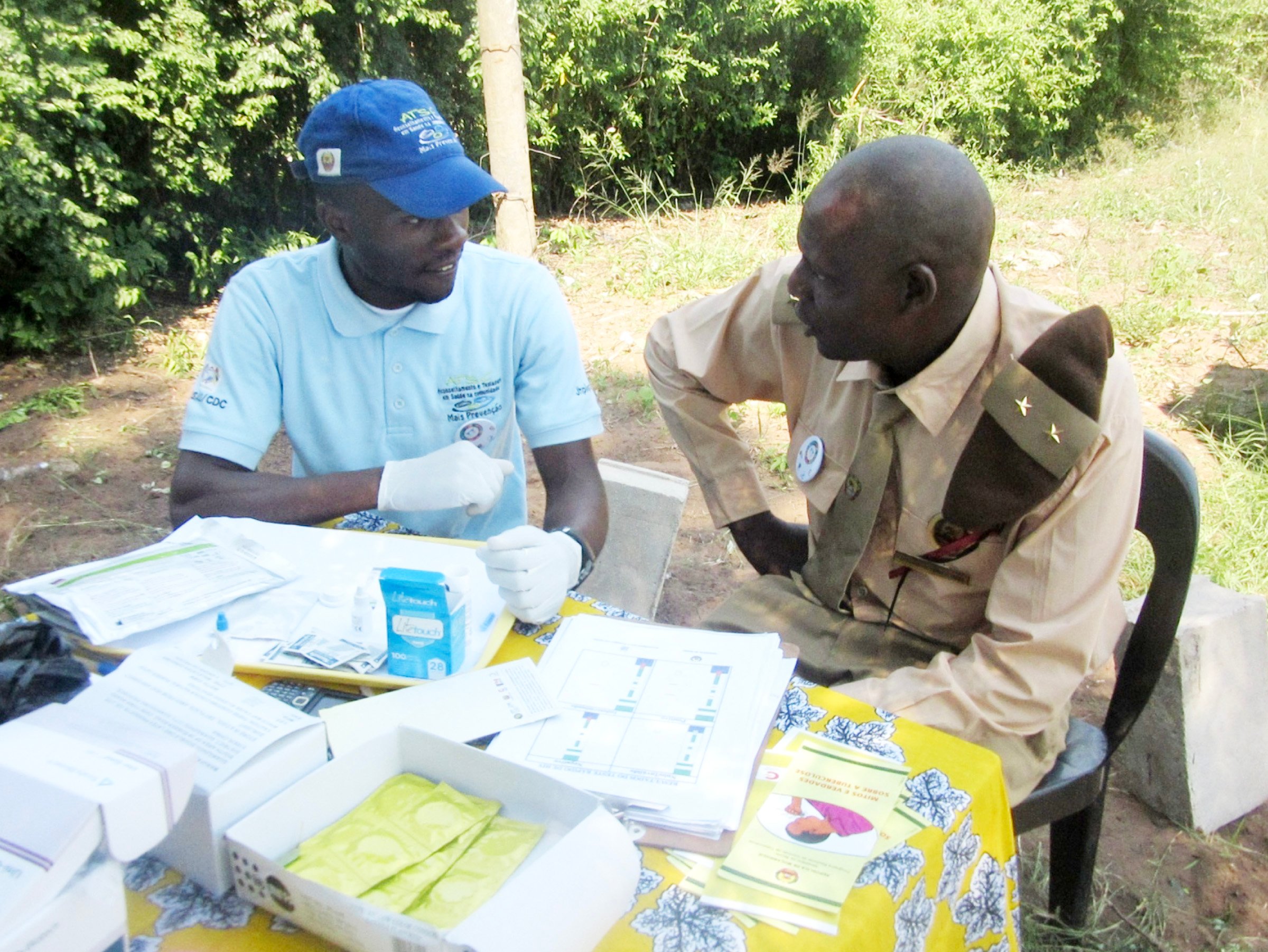Fighting HIV on the Frontlines in Mozambique

An ADPP Mozambique HIV counselor and a medical doctor meet with a Mozambican about HIV testing and treatment.
World AIDS Day, December 1, helps spread awareness about the need to continue fighting HIV/AIDS. While defeat of this dreaded disease is closer than ever, progress has not been uniform across the globe. One country where the battle is still raging is Mozambique.
In 2015, the Ministry of Health in Mozambique conducted a survey to determine the prevalence of HIV in the country. That survey found that prevalence is rising, especially in urban areas. Close to 2 million Mozambicans are HIV positive. That's one in every ten adults, and more than 200,000 children under the age of 15 who carry the virus.
 Dr. Sugata Mukhopadhyay (pictured on the right) works with Planet Aid's local partner, ADPP Mozambique, in the fight against HIV/AIDS. Dr. Mukhopadhyay has over 20 years' experience in public health and epidemiology from his native India. He explained that, in India, the HIV epidemic has a very straightforward transmission line that begins with certain high-risk groups, such as sex workers, and spreads from them (via "bridge populations") to the general population. Interventions, such as awareness training and condom distribution, are very effective in blocking the spread of the disease from high-risk groups.
Dr. Sugata Mukhopadhyay (pictured on the right) works with Planet Aid's local partner, ADPP Mozambique, in the fight against HIV/AIDS. Dr. Mukhopadhyay has over 20 years' experience in public health and epidemiology from his native India. He explained that, in India, the HIV epidemic has a very straightforward transmission line that begins with certain high-risk groups, such as sex workers, and spreads from them (via "bridge populations") to the general population. Interventions, such as awareness training and condom distribution, are very effective in blocking the spread of the disease from high-risk groups.
In Mozambique, however, the transmission dynamics are more complex. "The epidemic isn't fully driven by high-risk groups," Dr. Mukhopadhyay said. Multiple relationships and low condom use complicate how the virus is spread, with relations between husbands and wives and boyfriends and girlfriends serving as key parts of the equation. "Here, safe-sex practices are not as easy to establish," Dr. Mukhopadhyay said. "Condoms create fear of infidelity within these personal relationships."
Two other factors affecting HIV's high prevalence in Mozambique are intense levels of stigma and the low-levels of prevention awareness.
Three Levels of Stigma
Stigma is fought by everyone with HIV, not just those in Mozambique. However, Mozambicans are confronted by three levels of intense stigma.
The first level begins when a person is curious about his or her HIV status. Because the disease is dreaded so, volunteering to be tested raises suspicions and elicits ostracization. As a result, many Mozambicans suppress their inclination to be tested, even when they have symptoms.
The second level of stigma concerns those who are HIV-positive. People with HIV struggle to keep their positive status private and often refuse to even disclose their situation to their family. They fear that if they commence treatment, they will be shunned by the community.
Those that overcome this second level, face the challenge of treatment, which carries the most intense stigma of all. Often, HIV-positive Mozambicans have to visit a clinic every day for treatment. Thirty percent of those who do begin treatment in Mozambique drop out within one year. If those who are HIV-positive do not receive treatment, the virus in their blood remains at high levels and makes them more likely to spread the disease.
Pregnant women are even more prone to drop out of treatment. Women often learn their HIV status during routine testing at prenatal checkups, but many don't follow through with treatment. "The women are afraid," Dr. Mukhopadhyay said, "especially with a newborn. If their status is known, they might be thrown out of the house. How will she be able to look after a newborn then?"

A TCE field staffer speaks with women about HIV.
Understanding Prevention
The 2015 HIV prevalence survey conducted by the Ministry of Health found a surprising lack of understanding of HIV prevention and transmission among the general public. Of men, just under 55 percent had knowledge of HIV prevention and transmission. For women, it was lower still, around 48 percent.
One problem is that HIV prevention has drifted from the public consciousness. Dr. Mukhopadhyay said that while he often sees advertisements encouraging people to look out for signs of tuberculosis and visit a health center if any symptoms are observed, there is nothing of the sort for HIV. "Public awareness needs to be common," Dr. Mukhopadhyay said. "I didn't see any information about HIV [in public]."
Campaign Fatigue
In the past, there was more publicity about proper prevention behaviors. Today, Dr. Mukhopadhyay believes that Mozambicans might be suffering from the effects of "campaign fatigue." A South African study showed that campaign fatigue associated with AIDS occurs over time. As a result, the public can tune out HIV information or dismiss it entirely. Public information campaigns need to be constantly creative in order to be effective.
Campaign fatigue also exists with respect to the donor community, which is reflected in dwindling support for prevention.
Discussing HIV transmission and prevention in the community.
Combining Technology with the Human Touch
Dr. Mukhopadhyay is working as part of the ADPP Mozambique team to bring knowledge, testing, and treatment of HIV/AIDS to communities in need.
Teams of ADPP counselors go door-to-door in communities, building trust and understanding of the disease among individuals. They also test individuals for HIV/AIDS in the privacy of their homes, helping Mozambicans avoid the fear of stigma. Between 2015 and 2016, nearly 250,000 high-risk individuals were tested in the city of Maputo, of which more than 21,000 were identified as seropositive. In addition, nearly all of those individuals who tested positive were also screened for tuberculosis (TB), and approximately 750 people were subsequently linked to TB treatment.
One key facet of the program is a specially designed mobile app, which allows the counselors to immediately send test results to a nearby clinic. The app also helps the counselors to easily track the patients' treatments and clinic visits. This watchfulness allows the counselors to follow up if a patient misses a treatment, and thus helps increase treatment adherence.
"The app is important," Dr. Mukhopadhyay said, "but there is also the need for human touch. Each patient needs a support group to ensure the continuation of the treatment."
ADPP counselors help patients identify a person in their community who can be their "community provider." This person, someone whom the patient trusts, is trained in the disbursement of treatment in the village, so that patients can avoid going to the clinic daily.
This community-level approach has been ground breaking—successfully reducing the dropout rate by half of the national average. "The technology and human touch, combined, are the most effective intervention," Dr. Mukhopadhyay said. "With it, we can absolutely bring down HIV in Mozambique."

An ADPP Mozambique HIV Counselor sends HIV test results to a nearby clinic through the treatment app.

